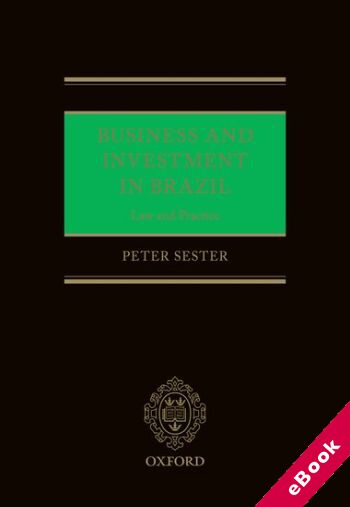
The device(s) you use to access the eBook content must be authorized with an Adobe ID before you download the product otherwise it will fail to register correctly.
For further information see https://www.wildy.com/ebook-formats
Once the order is confirmed an automated e-mail will be sent to you to allow you to download the eBook.
All eBooks are supplied firm sale and cannot be returned. If you believe there is a fault with your eBook then contact us on ebooks@wildy.com and we will help in resolving the issue. This does not affect your statutory rights.
Business and Investment in Brazil provides a thorough analysis of Brazilian business law for investors and their legal advisers, focusing on topics relevant to business transactions and disputes that can arise in the aftermath of the signing or performance of deals.
The essence of investment and negotiation processes is risk evaluation and allocation. Examining Brazilian law through the eyes of an international transaction lawyer, Peter Sester focuses on the legal risks, which are higher in Brazilian law than elsewhere, particularly in comparison with contract, partnership, and company (LLC) laws governing international business transactions in the US and UK. However, whilst Brazilian contract law remains a risk factor as a result of its over-ambitious and consequently interventionist approach, Brazilian law in the areas of stock corporation, capital market, antitrust, and public procurement are state-of-the-art when compared to the US and leading European laws in Germany, Switzerland, and France.
This book is divided into eight chapters: the introduction provides an overview of the economic and legal framework for doing business in Brazil, focusing on features of the Brazilian legal and economic order that are unusual to international practitioners from a comparative perspective. The other seven chapters analyze those fields of substantive law that impact most investments and cross-border transactions in Brazil. They include important historical and economic context such as inflation indexation and the broad use of good faith, as well as explorations of common legal pitfalls such as the limited scope of freedom of contract and its mandatory provisions. The book focuses on the interpretation of statutory law by the Brazilian Superior Court of Justice and regulatory agencies, and also provides insights into the economic and business rationale of some of the legal solutions offered.